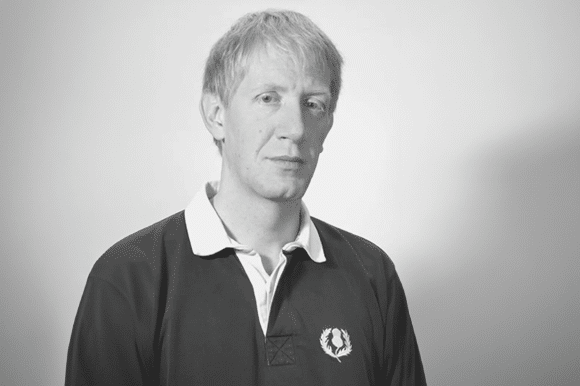For Neurodiversity Celebration week 2023, we spoke to author James Christie about the challenges Neurodiverse workers face in the workplace.
As an Asperger diagnosed with autism in 2002, James has sometimes struggled to find and maintain employment due to a lack of understanding and accommodation from employers; but he hasn’t let that hold him back.
Differently Wired
James’s story illustrates the obstacles that autistic individuals often face when trying to navigate the world of work. Despite his degree in creative writing and authorship of two successful books: Dear Miss Landau (which has a unique link to one of the most famous TV series in historyBuffy the Vampire Slayer), The Legend of John Macnab (the only novel in the modern era commercially to publicise the Book of Deer) and the publication of an anthology of articles ‘Differently Wired – articles by an autistic blogger’ he has been repeatedly turned away from potential job opportunities due to the stigma surrounding autism and a lack of willingness from employers to make reasonable accommodations.
Frustrating and disheartening
“I was sick of organisations, bureaucracy, jargon, lumpen inertia, and a plain old inability on their part ever to call anyone back,” James explains. “You’d think that in this day and age, with recruiters supposedly searching harder and wider for talent and unlocking potential to fill the skills gap, that they would at least look upon me with an open mind and flexible eye”.
James’s experiences have been frustrating and disheartening, with employers often not understanding how to work with him effectively. “Despite one team leader saying he had ‘been on a course’ to ‘understand autism’, he didn’t have a clue nor any wish to create a positive working environment for anyone except himself and his cronies,” James says of one employer. “They just didn’t care. It nearly forced me into a nervous breakdown”.
As a fellow Asperger once said:
Beating the odds
James, however, has been determined to beat the odds and be an active part of the workforce, even when it meant taking work outside the area of his qualifications and experience in writing, cataloging and librarianship.
“Most of my traditional jobs had been so useless and damaging that I honestly sometimes wondered whether I might have been better employed just staying at home writing… I even ended up working a in a local motorway services a couple of times and, yes, I cleaned toilets. Yet despite all these blows and setbacks, I have succeeded.”
“I’m an Asperger, and according to a recent Office for National Statistics survey, I’m one of only 22% of autistic adults in any kind of work at all. The National Autistic Society rightly considers this figure shockingly low”.
The pandemic has exacerbated the challenges
The COVID-19 pandemic has further exacerbated these challenges, with many autistic individuals experiencing even greater difficulties finding and maintaining employment. However, James is willing to cooperate with employers who are serious about working with autistic individuals.
“Along came the Covid pandemic, and now the UK finds it’s got a labour shortage and it’s desperate to get us over-fifties (autistic and neuro-typical alike) back into the workforce. Most of us feel like telling you to shove it because you treated us so badly beforehand, and I understand that feeling perfectly.
“I’m willing to make the effort with employers,” he says. “But you have to show me what your fine words really mean. Show me that you’re really serious about searching harder for talent and unlocking potential. Show me you really are inclusive and value diversity. Show me that you’ll at least bother to pick up the phone.
“If you do that, who knows? Either or both my books could be optioned as a film and/or TV series, create jobs and inspire people with autism, which was the original aim of Dear Miss Landau.”
What do your fine words really mean?
Autistic individuals like James deserve to be given a fair chance in the workplace, with employers making a genuine effort to understand their unique needs and work effectively with them. His experience highlights that it’s not enough just to tick boxes and have a diversity plan. Fine words need to be followed through with real actions.
The benefits are considerable: Organisations which have effectively tapped into the abilities of a neurodiverse workforce have gained substantial advantages. Autistic employees exhibit traits of loyalty, commitment and reliability. They can develop innovative solutions because they naturally think outside the box. Additionally, some individuals on the autistic spectrum excel at tasks which demand meticulous attention to detail and accuracy.
For example, James was once a rare book cataloguer in a stately home, and single-handedly sorted out a historic book collection of national importance. How’s that for contributing to society?
Read our advice here on how employers can support autistic workers
